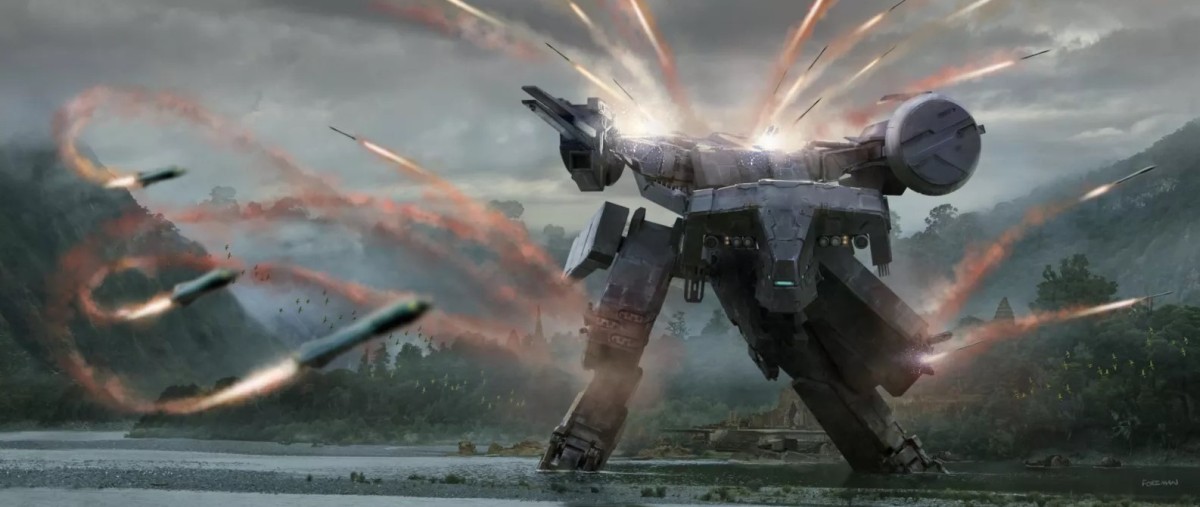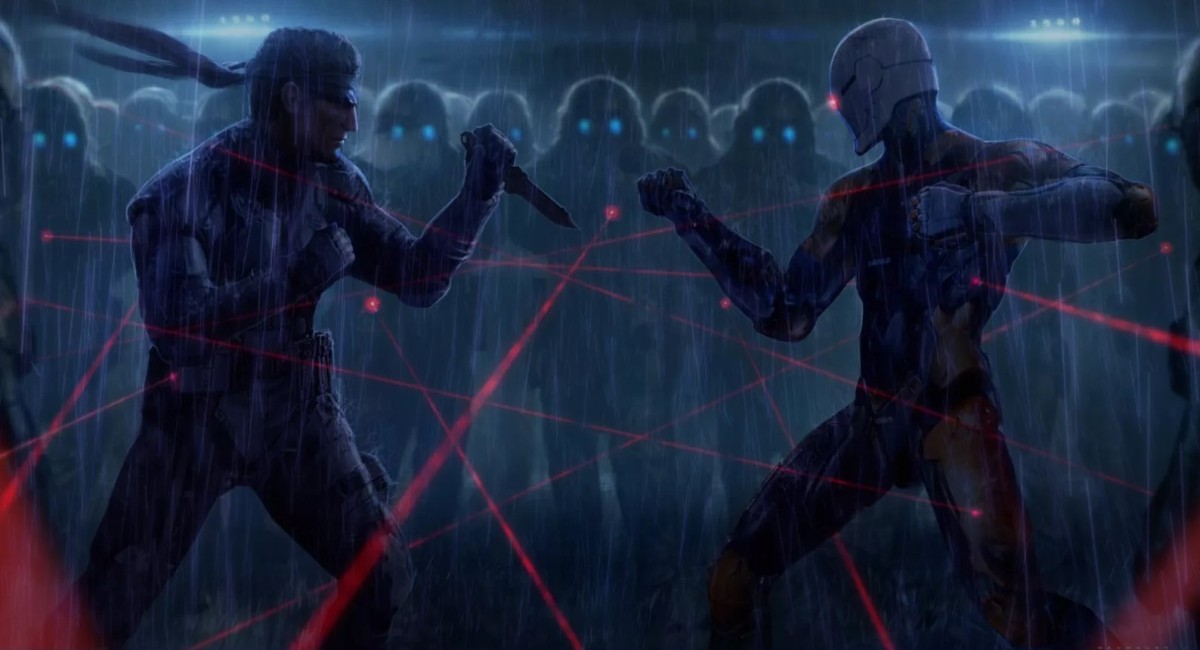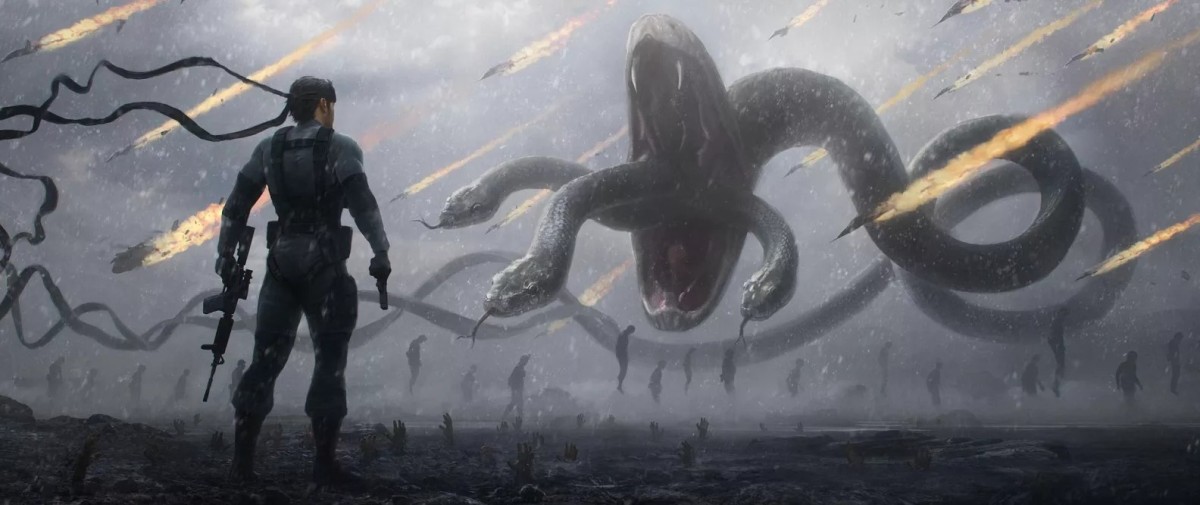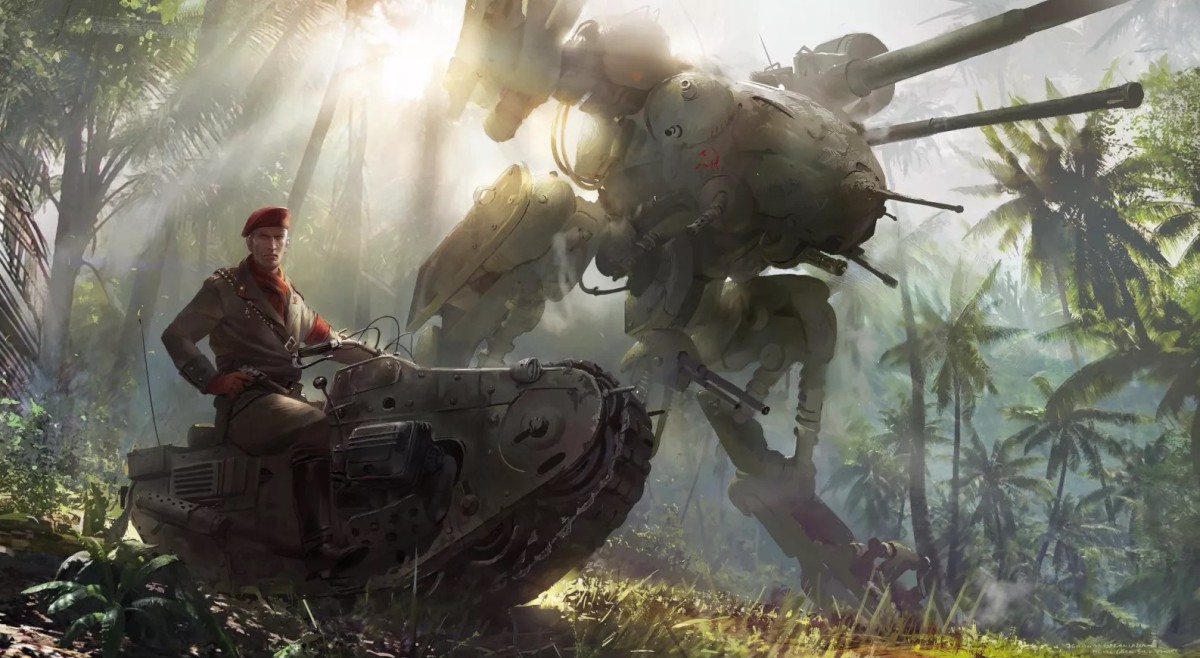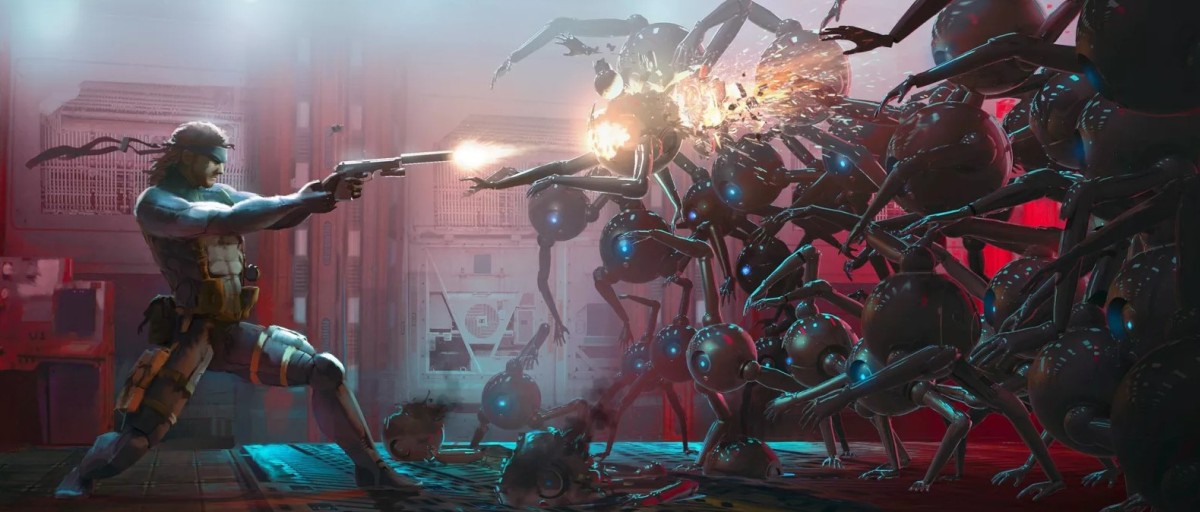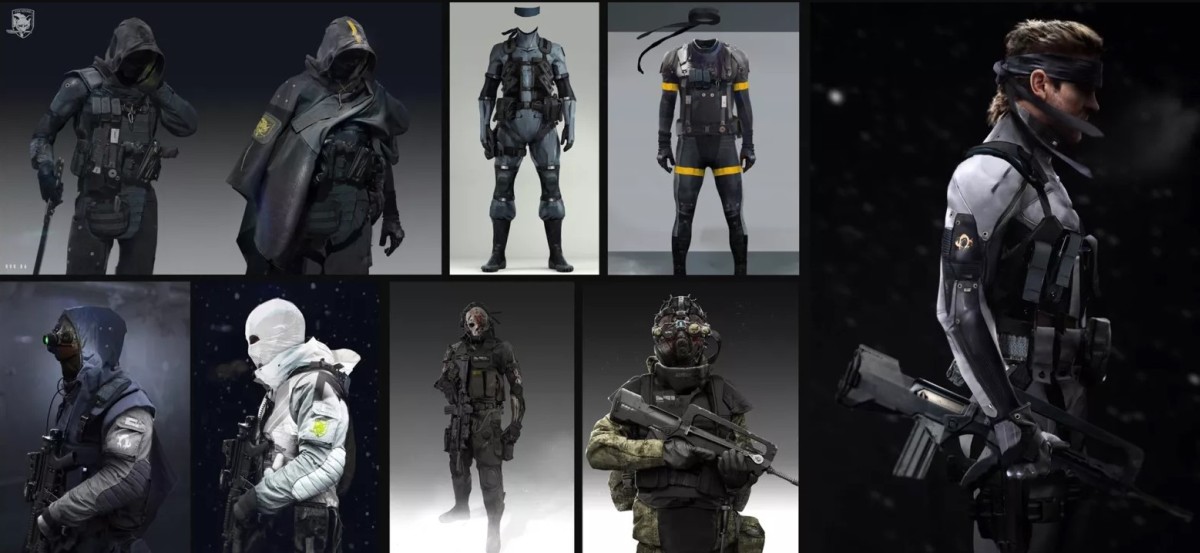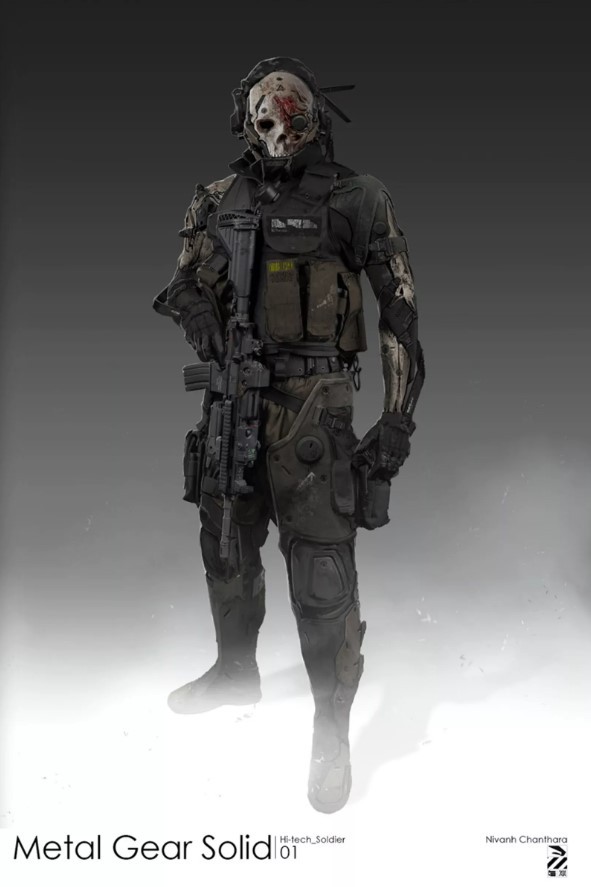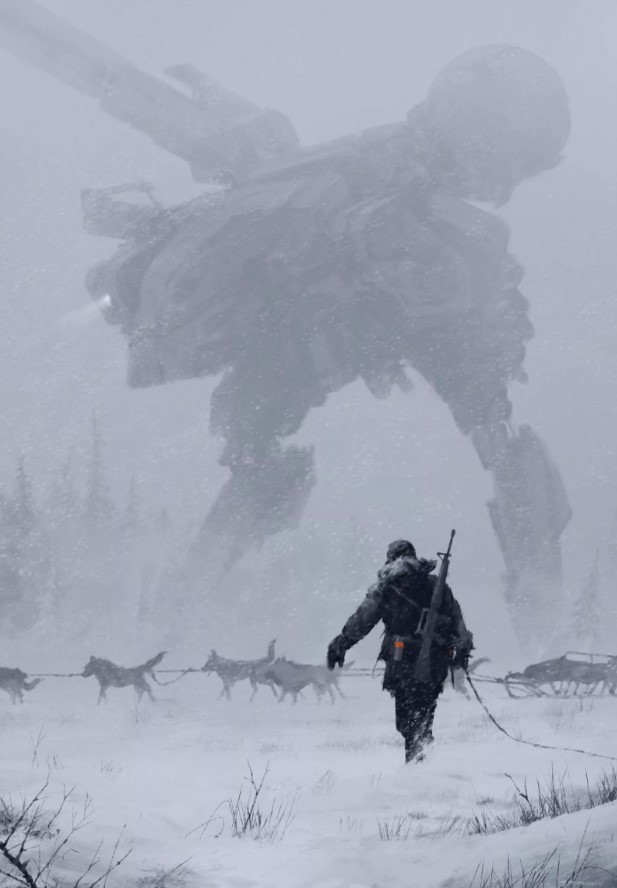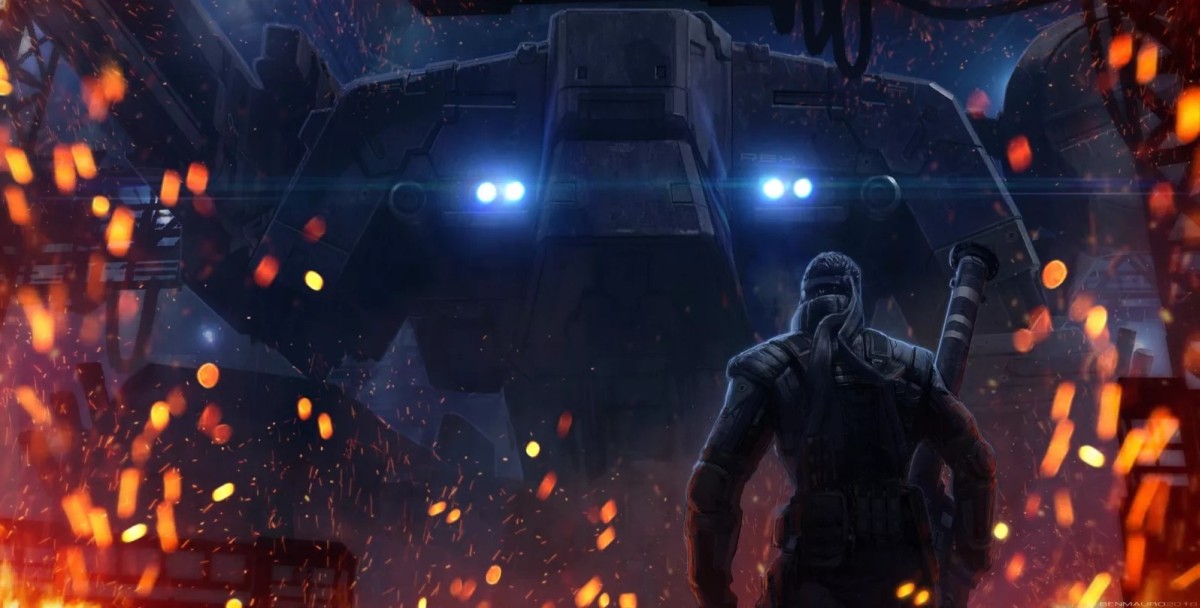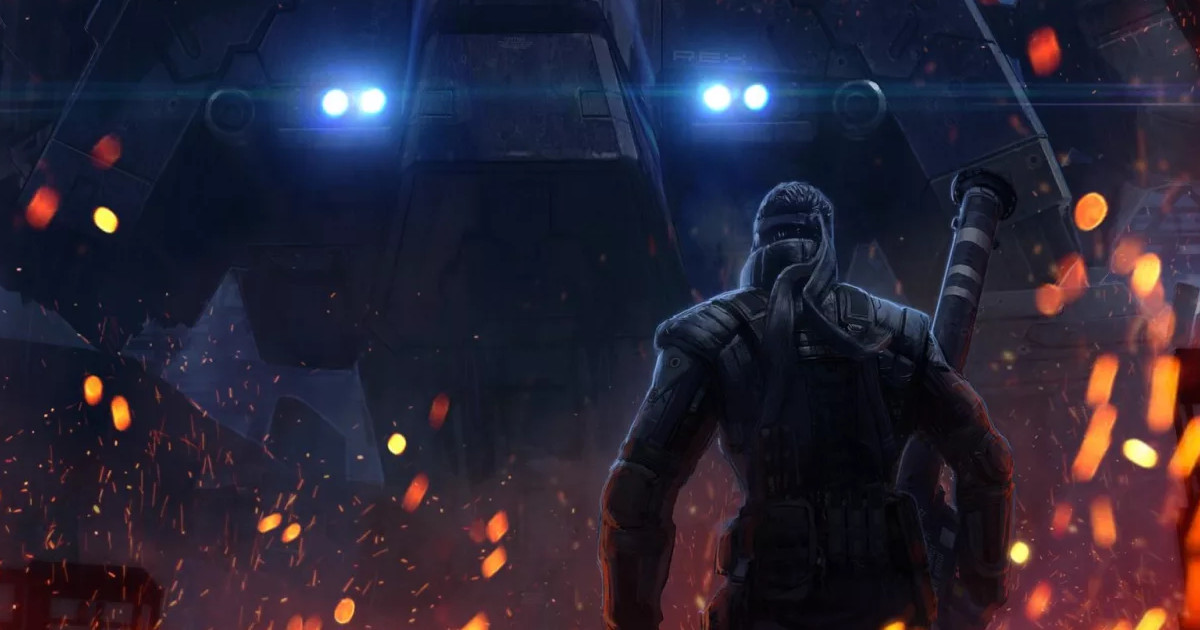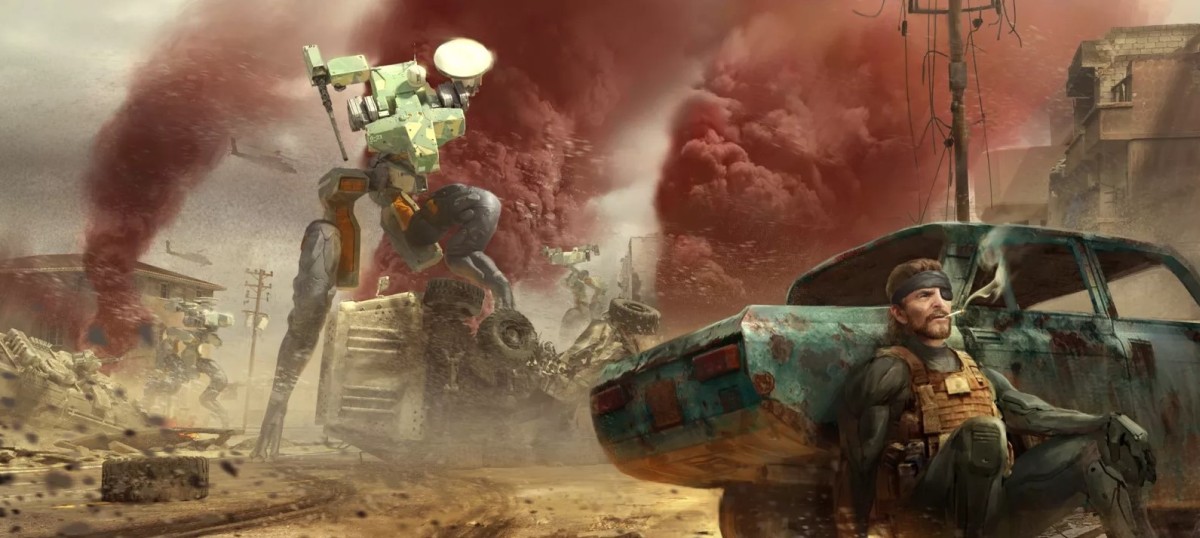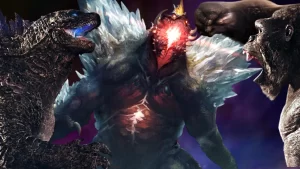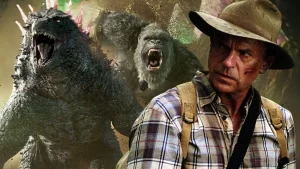The Metal Gear Movie Project:
Goals, Hopes, Fears and Realities
(Editor’s note: the art found in the article is concept art Jordan Vogt-Roberts commisioned; find more art and follow Jordan Vogt-Roberts on Twitter)
Jordan Vogt-Roberts, director of several TV shows, indie films and a little project known as Kong: Skull Island (2017) is currently waging an internet campaign to get a pet project he has been working on for 5 years green lit. That project is the live action, Hollywood adaptation of Metal Gear Solid, the popular videogame franchise created by Hideo Kojima about legendary soldiers, giant mechs, the state of war and the state of the world. This production is listed on imdb.com as “in development” with Sony/Columbia Pictures being the studio backers with producers Avi Arad and Josh Bratman leading the way along with Vogt-Roberts.
Ever since the videogame’s initial release back in 1998, there had been talk of a film adaptation because so much of the fiction’s content and context was and would continue to be crafted in such a cinematic style that it practically begs for the Hollywood treatment. Kojima, a proper cinephile, has credited several great films of the past as directly influencing the enveloping saga of Metal Gear such as The Great Escape (1963), Goldfinger (1964), The Deer Hunter (1978), Full Metal Jacket (1987), Die Hard (1988) and Heat (1995). Hollywood, always desperate to seek out new pockets of content to exploit due to a severe lack of originality, would be daft to snub such a treasure trove. Right?
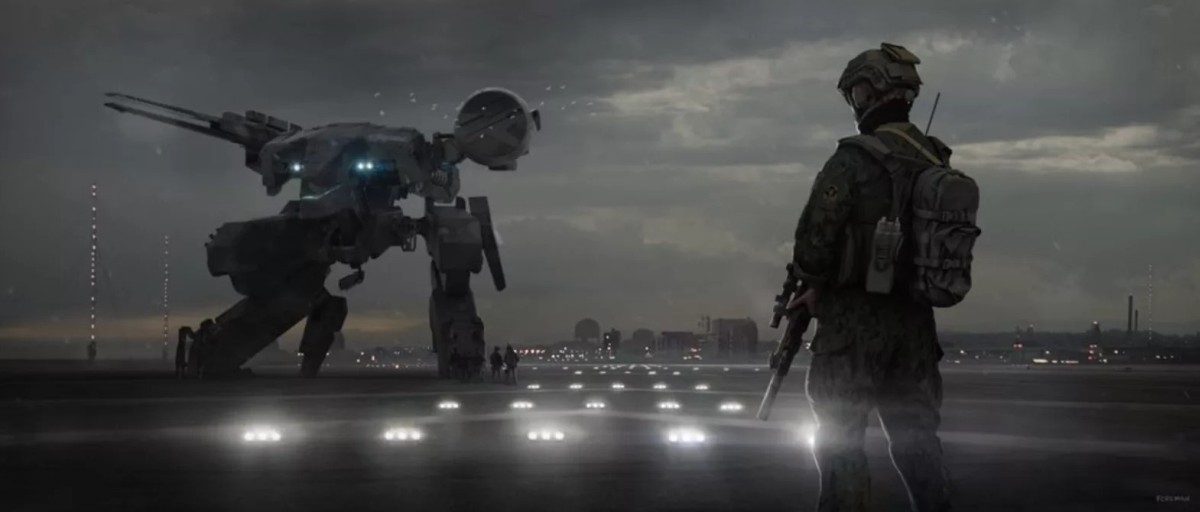
Film adaptations of video games are relatively recent phenomena and the industry has been justifiably hesitant to license every conceivable IP with the intent of producing feature films ASAP. They do not have a reliable history of either positive reception or return at the box office, they frequently bastardize the source material, they tend to have lower budgets than non-game films of similar genre and they rarely attach the biggest stars to even attempt a mass appeal beyond the niche. Ever since the unmitigated disaster that was Super Mario Bros. in 1993 [and I highly recommend you research its production horror stories as a case study in how “Not to make a movie!”] these films have set the bar fairly low and none have ever had the ambition to deliver a cinematic adventure beyond a quick cash grab. Video game adaptations, simply put, are a turn off for studios and the entire filmmaking community knows it.
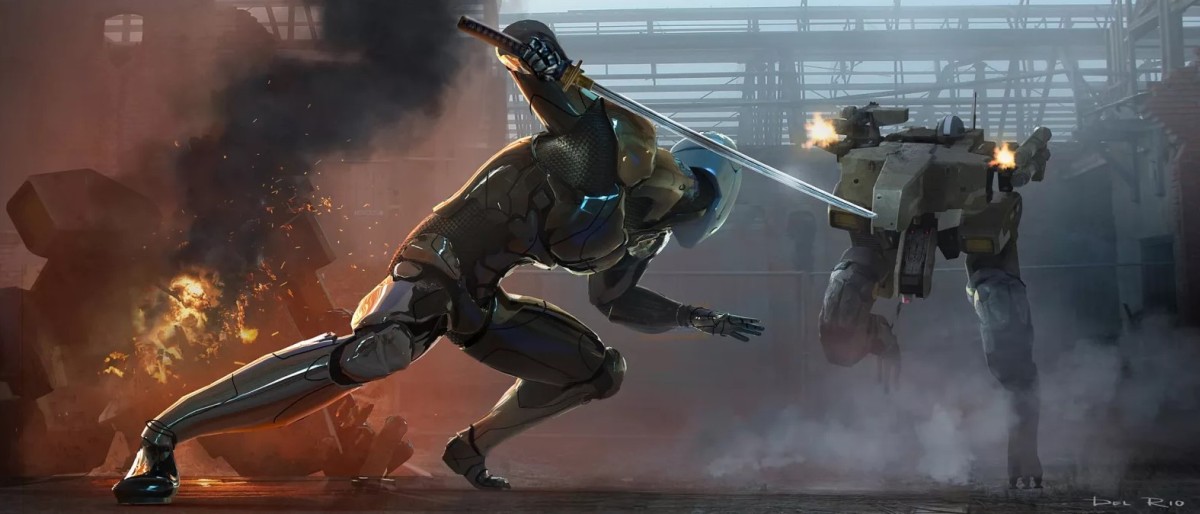
In his own interview with Collider, V-R is asked if any videogame adaptation hit the mark and could only site 3 films not based on videogames: Kubo and the Two Strings (2016), Snowpiercer (2013), and Edge of Tomorrow (2014) as the best examples of “video game movies.” The problem with that answer is that those films while stylistically reflect the best of what videogame adaptations could be have story mechanics and plots that specifically cater to the structure of classic film narrative. A videogame adaptation of an IP with a story as strong and unique as Metal Gear demands a reversal: the film’s structure must bend to story and character. The fact that this has not happened in any video game adaptation is a major reason why they have been regarded as hollow shells of far heartier mythologies explored in their original videogame forms.
Jordan Vogt-Roberts has great ambition to seek out an adaptation of Metal Gear if, for any other reason, the sheer scale of story it represents would require a massive studio commitment in time and money along the lines of Lord of the Rings. Make no mistake, while the various entries of Metal Gear games jump generations in time, their narrative codependence is critical and needs to be approached as one, seamless saga. Piecing together this franchise via single serving productions, pitching additional sequels to the studio each and every time is possible, but dilutes the focus and vision of an original production team that would inevitably change. A strong, singular vision is the only way the “sprawling story” of Metal Gear can be wrangled into a cohesive film franchise. Adapting this particular IP “the right way” would require investment, writing, planning, production and performance unprecedented for video game adaptations. I’m fairly certain V-R is aware of this. I just hope that he can achieve it.
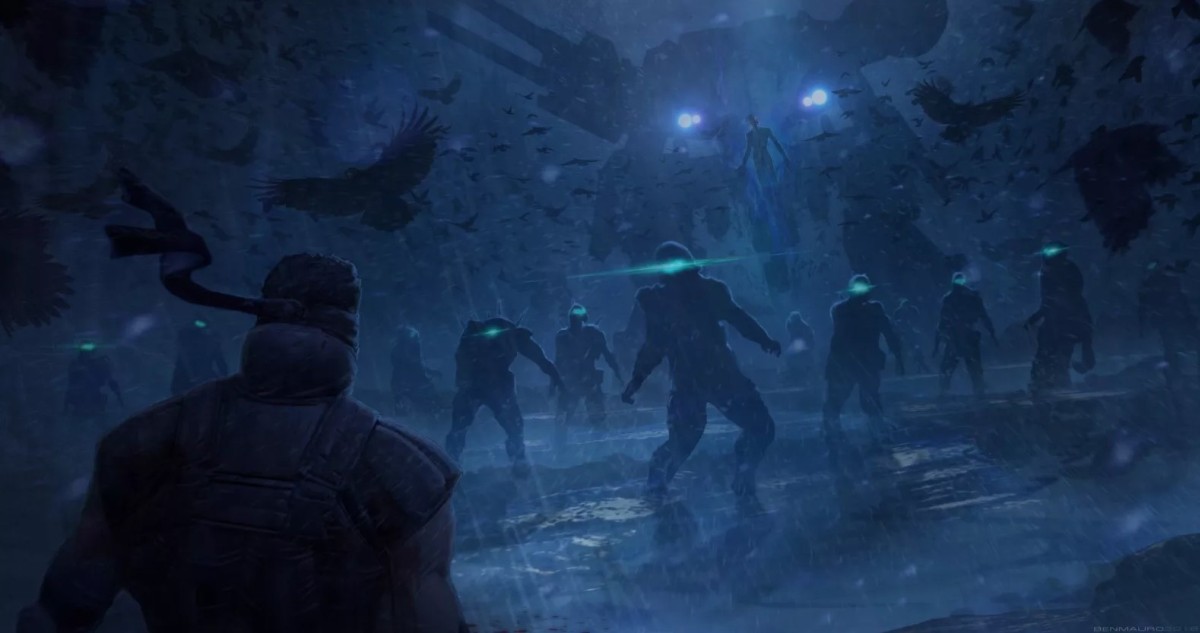
Goals:
During his interview with Collider, Vogt-Roberts presents several pieces of concept art that would capture the visual concepts he has about the story of Metal Gear and how those could impact the kind of story he wants to tell. Throughout the 35 minute interview, V-R demonstrates a solid grasp of plot and character which one expects of any director, but it is the manner in which he comments on the context of the melodrama, its surreal nature and often absurd collision of scenario and circumstance that shows promise in his goal to stay true to the vision of Hideo Kojima. Fluency with the IP and the intelligence with which he expresses his ideas is indicative of the kind of passion required to even attempt the monumental challenge of adapting Metal Gear the right way.
Of course, “the right way” is such a subjective and nebulous phrase often ascribed to dream productions that fans, amateurs and outsiders often demand, but rarely know what that really means. There is no rulebook or checklist that defines “the right way,” but I can easily describe “the wrong way” because it explains the surface scratching history of videogame adaptations to this point. For instance, the garden variety producer/director in Hollywood takes a quick glance at Metal Gear and presents a film no deeper than conventional army warfare against hi-tech giant robots remixed with a little James Bond action. With no attention to theme, no regard for its anti-war commentary and with no focus on how technology impacts the evolution of society, Metal Gear easily turns into an Expendables rip-off. This might yield a mildly entertaining film in terms of action and effects, but without depth of story, this film would invalidate its name sake and would observe diminishing returns at the box office from the casual audience as “just another military shoot ‘em up.”
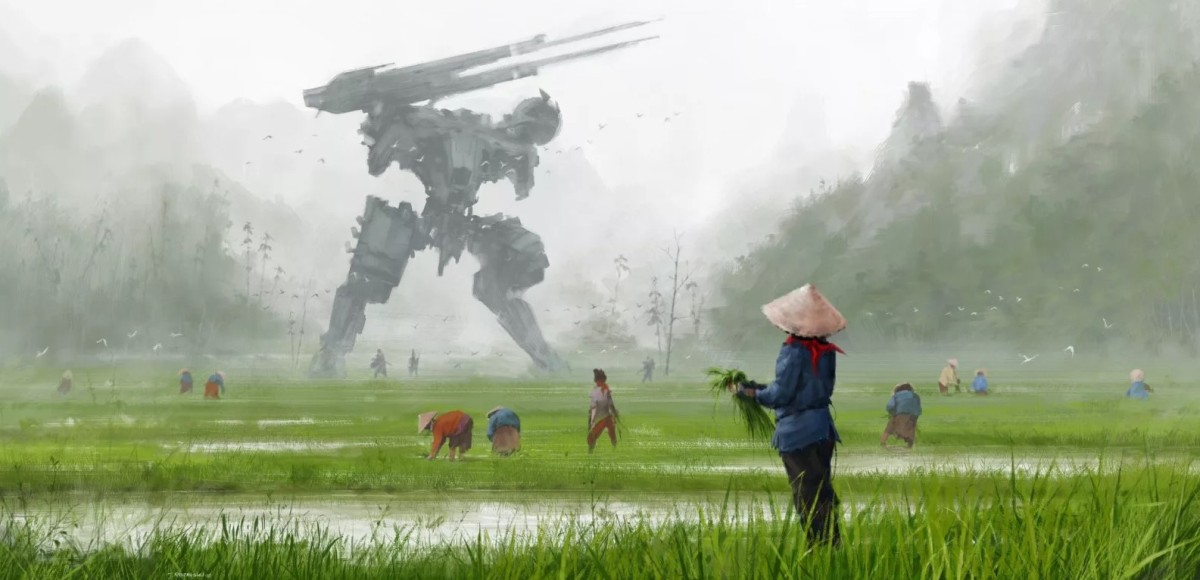
Military, guns, soldiers, nukes, technology and robots are bullet points for Metal Gear, but do not comprise the fundamental pillars of its drama. The pain of loss on the battlefield, seeking meaning amidst the madness of war and the significance of legacy (biologically and philosophically) are the themes that make the saga of Big Boss and Solid Snake unique. The fact that V-R talks about these points and returns to them while discussing the concept art suggests that he is always mindful about what’s really important about the story in this film adaptation.
Staying true to Kojima’s vision, showcasing the importance of the content and context of the story and preventing Metal Gear from turning into “other types” of genre films are all fine goals to strive for.
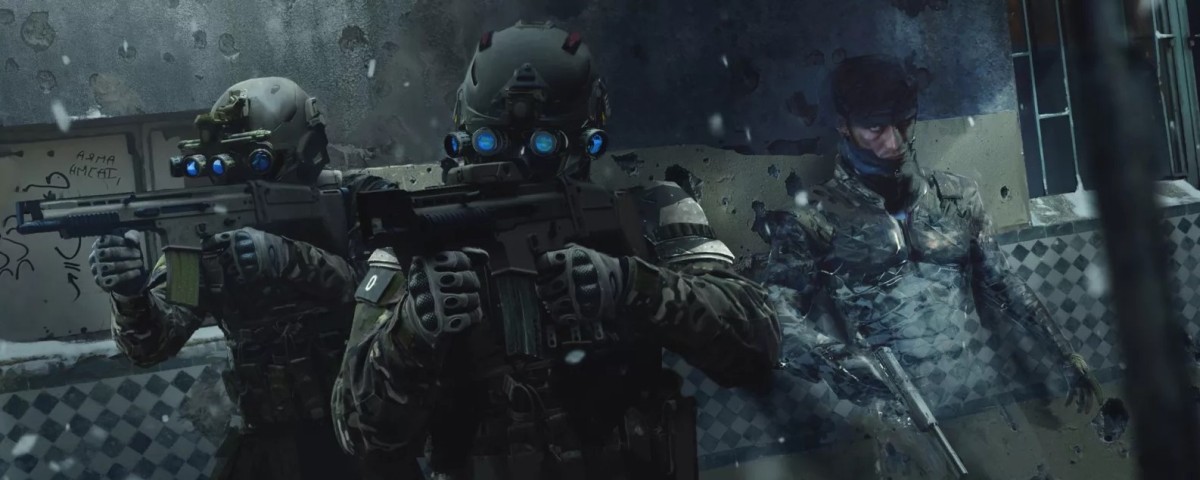
Hopes:
If human beings are to be defined as existing in a state of war within ourselves and each other since the species became conscious, then Metal Gear has plenty to say about that subject. A film adaptation mindful of making that kind of commentary needs to hold back on screen time devoted to action sequences and CG set pieces to allow the drama of dialogue to enhance the plausibility of an otherwise ridiculous scenario in order to make the message penetrate. I realize this would be counterintuitive to the visual filmmaker who desires to construct that which hasn’t been seen before. Hopefully, Vogt-Roberts will resist the temptation to CG everything in order to deliver a steady stream of human moments which will elevate this fiction’s authenticity and anchor the audience’s attention likely to get lost amidst the myriad subplots and twists inherent to the story.
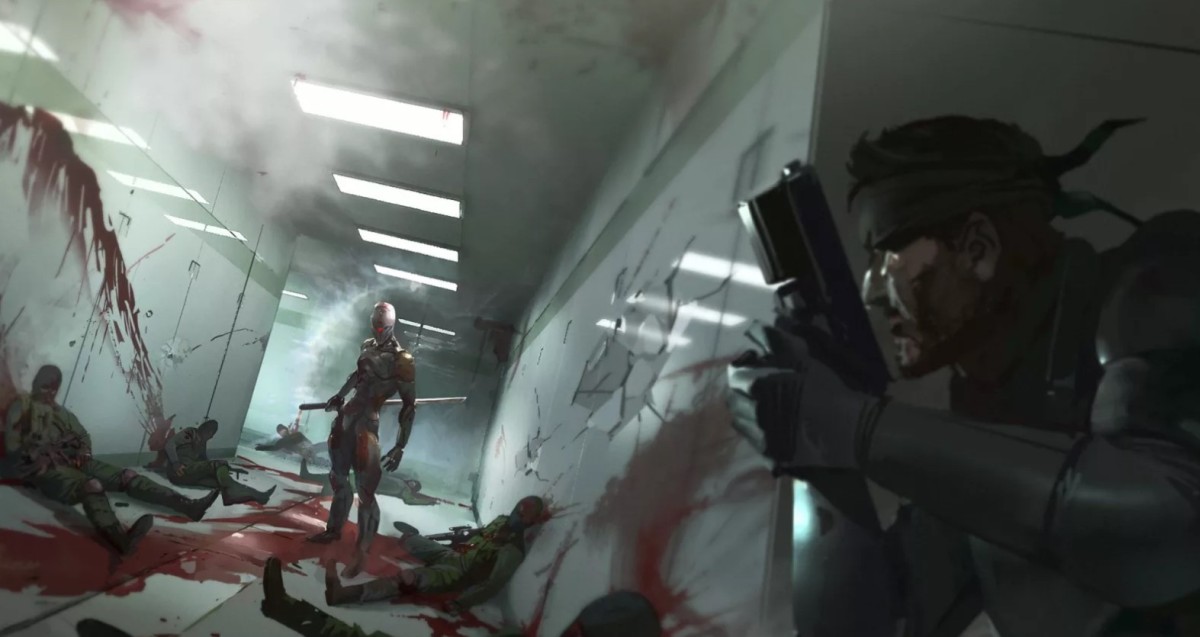
I hope that whoever is selected to play the role of Snake (Naked, Solid, Punished, Old, or otherwise) is not only signing on to a production that is absolutely serious about its goals and ambitions, but is equally serious about committing to an iconic role that will define one’s career. This man would not have to be an established A-lister to succeed, but he absolutely must have the acting chops and more importantly the desire to meet and exceed the writer/director’s vision of what it means to depict the legend of such a character. Receiving equivalent intensity from the entire supporting cast would be nice, especially for the role of Ocelot, but a tad unrealistic considering the ever changing and expanding roster of relevant characters to the story. Yet, Snake is constant. He must be the right choice and he must be fully committed or the franchise dies and Metal Gear’s pop cultural relevancy turns into a joke. No pressure.
I hope that this film franchise can progress as chronologically as possible. Kojima created all these games with different ideas in mind to explore different instances in time for a multitude of reasons. A film franchise that begins at some point only to immediately follow up with a prequel that goes back to a sequel is frustrating to the general audience. Two things can be done to preempt this potential setback: choose to begin the films as far back in the past from the era of Snake Eater or begin with Solid and use tactical flashbacks to tie-in the relevance of the past. Either way, forward progress should be maintained because it will keep audiences satisfied and force the filmmakers to make tough decisions on what to keep and what to lose in adapting this kind of story. Throwing in every reference, visual, character and situation will distract from the original vision and will lead to disaster.
Fears:
My first and most obvious fear is that this project goes nowhere and is left within the void of production hell, never to be heard from again. The fact that Vogt-Roberts is taking it upon himself to go public with the work he’s done so as to promote a project that hasn’t actually been established yet suggests major studio interest in this production is little more than theoretical. There’s also the fact that every argument that could be made to green light Metal Gear can be easily countered with very real concerns: How much money do we actually need to make this? Dealing with Konami is a giant hassle. How does this compete with the MCU? This IP is too big to translate to the screen. Are we willing to deal with the political fallout of such a production? There’s a lot that screams red light to a Metal Gear film adaptation.
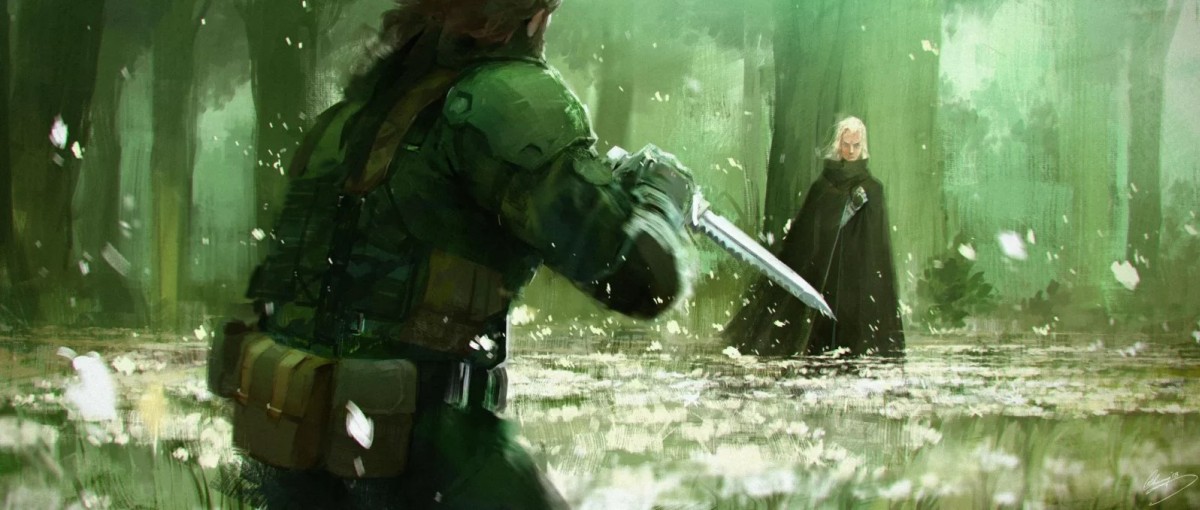
Another fear is that this production does get the go ahead, but its good intentions of delivering the story “the right way” are consumed by studio ambitions to make it as profitable and accessible as possible by amending the story to placate demographics. This goes beyond the argument of making these films R vs. PG-13 rated because I believe quality films can be produced either way. I’m talking about vetoing major chunks of story, eliminating certain characters, fabricating new ones and synthesizing scenarios from different eras in the interest of saving time. Studio interference on this scale will lead to vehement fan backlash on social media, but more importantly, has a negative impact on the quality of the product. No amount of edits, reshoots, and visual tricks can mask a film that plays as a hodgepodge of stuff thrown on a screen in order to check individual boxes that “are positively received by test audiences.” I can understand the studio’s desire to tinker in the interest of protecting its investment, but there’s a difference between tinkering and “Frankensteining.”
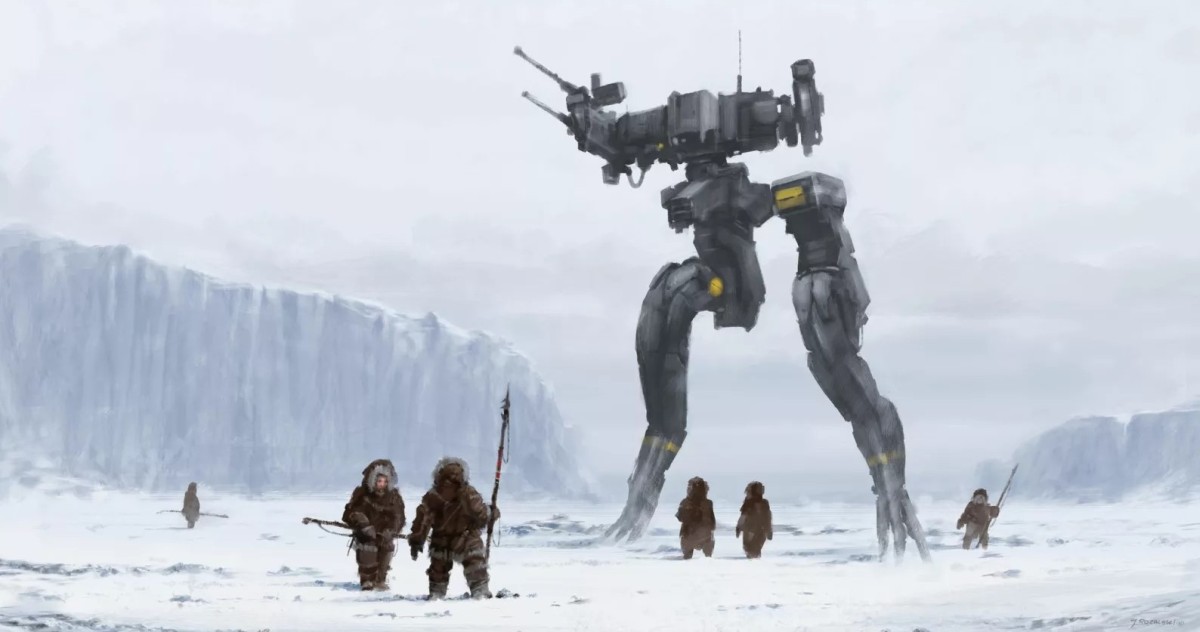
I fear the quality of the script. V-R credits the first draft of a script submitted to Sony Pictures in his interview with Collider to Derek Connolly who co-wrote Jurassic World and its sequel Fallen Kingdom. While I mildly enjoyed those films thanks to Chris Pratt’s contributions, I was completely let down by these stories being rehashes of the original, their generic action film formulas and a complete lack of ambition to explore plots beyond dinosaurs eating people. If Derek Connolly is to be the lead pen on V-R’s vision of Metal Gear, then he is either positioning himself to have a transformative surge in talent, passion and creativity or Metal Gear is going to turn into the most vanilla, military-tech drama audiences have been fed to date. V-R says all the right things here by lauding the script as a “different approach to a video game movie,” and “very inventive,” but “different” and “inventive” is the furthest thing from Connolly’s work thus far which, by the way, was also built off of previously established, blockbuster success in the Jurassic films. If Metal Gear’s script is found guilty of being “generic” and “formulaic” then its death sentence has been signed, sealed and delivered before being green lit in the first place.
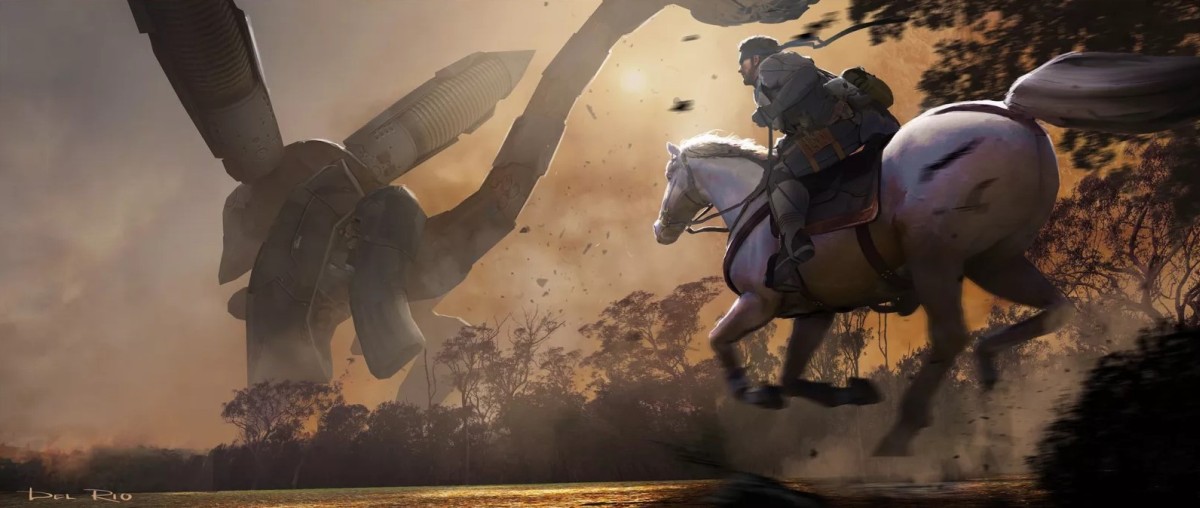
I am fearful of plot devices. I’m not talking about quirky MacGuffins that purposely distract in order to set the audience up for surprises and twists as the film progresses. I’m talking about left field, out of nowhere, dues ex F.U. bombs that specifically tell the audience to ignore whatever confusion they may have developed, to accept every plot-hole and to shut up and swallow any plot point whether it was earned or not. V-R states: “We have a device that I think allows us to respect the breath of the franchise, respect the sprawling nature of the franchise, respect the somewhat convoluted nature of the franchise at times, but then to still show you the mirrors, and what I mean by that is like all of those time lines fundamentally exist because they show the repetition of war throughout time, they show repetition and the cycle of pain throughout time and so it’s almost impossible just to tell one story now because you need the full through line of what this game is about.” Of course, spoilers prevent V-R from telling us what that “device” is, but hopefully he’s talking about a strategy in the story’s structure to maintain coherence and not some recurring BS excuse like “nanomachines, son!”
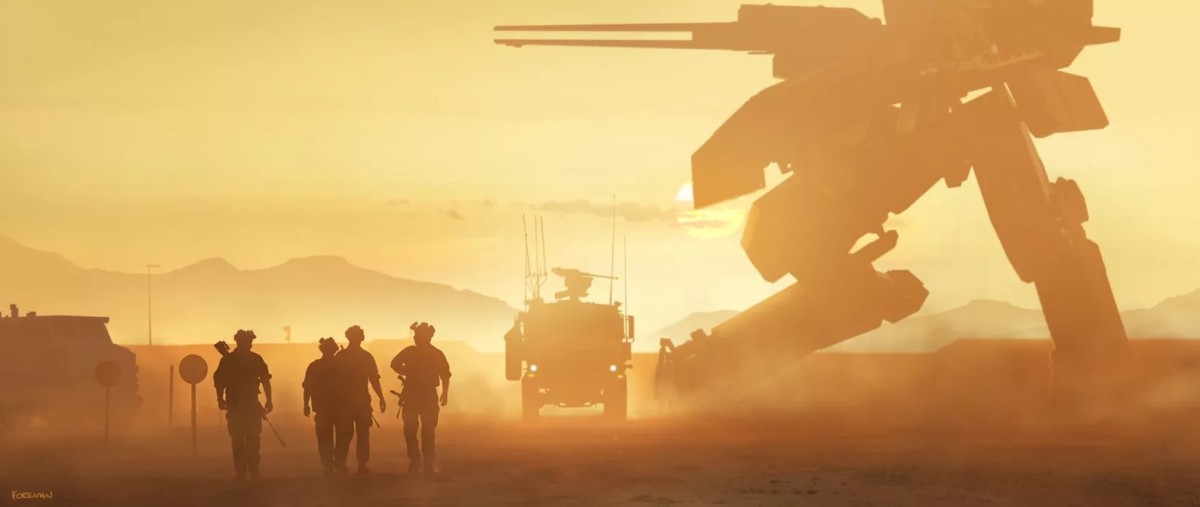
Realities:
The current reality is that the big screen Metal Gear adaptation does not exist despite the aspirations of Jordan Vogt-Roberts or anyone else potentially attached to such a project. There’s also no evidence to suggest that that this idea will evolve beyond the theoretical stage. All that exists are a bunch of good ideas, some concept art contracted by a Hollywood professional and a first draft of a script.
Also a reality is the existence of a global market ready, willing and able to fully buy into a Metal Gear film franchise. There is a massive audience out there and the desire to see this project become a reality is high. However, the brand of the IP is nowhere near its peak what with the poor reception of the final act of Metal Gear Solid 5, the public falling out between Kojima and Konami and the offensive, derivative release of Metal Gear Survive.
Finally, the vision, energy and ambitions of Jordan Vogt-Roberts are real. You may or may not agree with his sensitivities, ideas or angles regarding Metal Gear, but you cannot question his passion for making this project a reality. The manner in which he is making his case to the court of public opinion is uncommon for Hollywood professionals, but it could be effective in ultimately bypassing any corporate roadblocks setup by studio executives. Generating vibe, energy and enthusiasm in social media for an idea, service or product can yield results, but results remain to be seen for the Metal Gear movie project. I respect and appreciate V-R’s effort to do everything in his power to pursue this labor of love and I hope that I can write a review about the first great video game adaptation: Metal Gear Solid.
